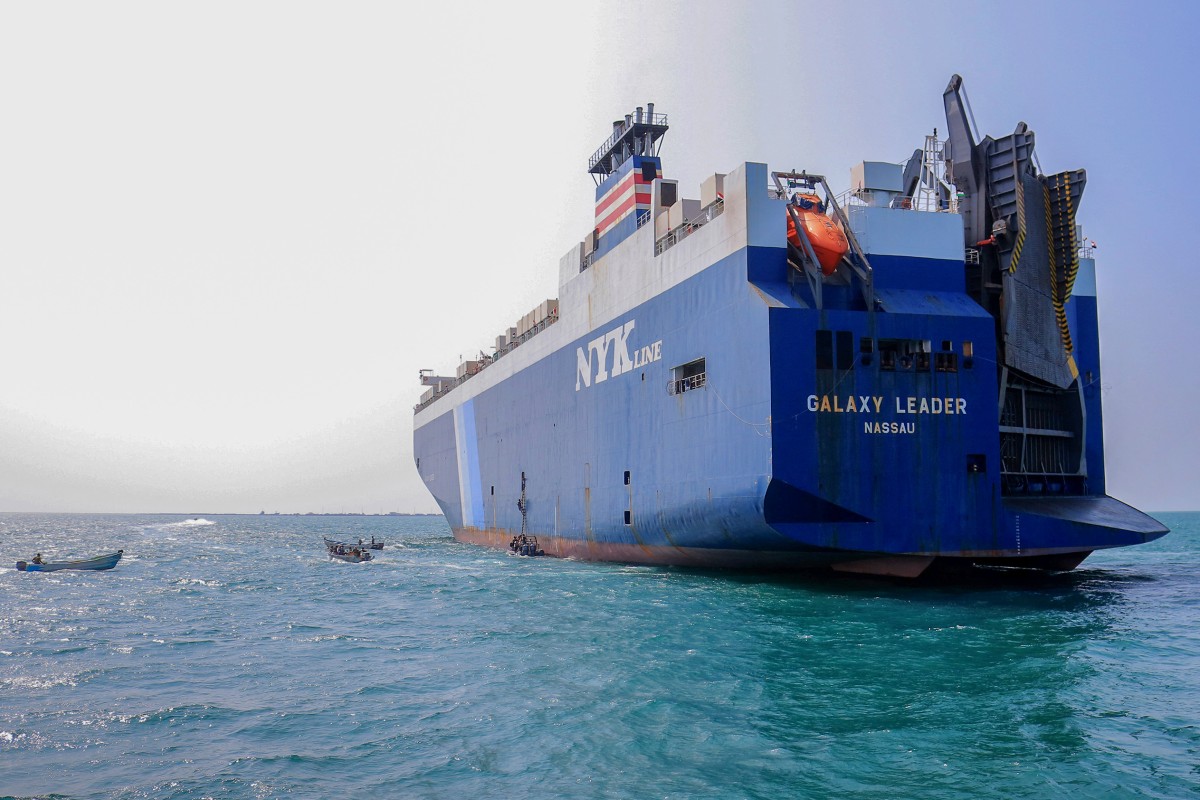Red Sea shipping disruptions boost oil prices at 2-week high, US dollar steady
ALBAWABA – Oil prices traded near their highest close in more than two weeks as the US dollar fluctuated within a narrow range but remained largely stable against most other major currencies.
Global benchmark Brent traded near $78 a barrel, after rising 1.8 percent Monday to its highest close since early-December, according to Bloomberg. West Texas Intermediate (WTI) was over $72 a barrel.

Oil prices rose after Houthi attacks disrupted Red Sea shipping as 8% of the world’s crude transits through the Suez Canal and the Red Sea - Shutterstock
Reuters reported Brent crude futures at $78.01 a barrel on Tuesday, up $0.06 by 0726 GMT, and the front-month WTI crude futures contract, which expires Tuesday, down $0.18, at $72.29 a barrel.
The more active second-month WTI contract dropped $0.10, or 0.1 percent, to $72.72 a barrel, according to Reuters.
Oil prices surged on Monday after British Petroleum (BP) announced it will pause all Red Sea shipping operations, the BBC reported, and Equinor ASA said it is diverting vessels away, as per Bloomberg.
US dollar steady, oil prices up as BP pauses all Red Sea shipping boosts, US forms anti-Houthi coalition
Disruption of Red Sea shipping has bolstered oil prices as multiple major shipping companies announced they will be restricting or limiting shipping through the Bab al-Mandab straits.
Other companies said they will be avoiding the route altogether.
Attacks by Houthi rebel groups against Israeli-affiliated shipping vessels and those reportedly bound for occupied Palestine have raised concerns about the route’s safety.

Oil prices rose after shipping companies announced they will be avoiding the Red Sea shipping route after the Houthi group upped their attacks in recent weeks and kidnapped at least two vessels, including the Israeli-affiliated Galaxy Leader - AFP
Houthis cite the Israeli genocide in Gaza, following the Palestinian resistance’s surprise attack on October 7, as the main reason behind the renewed hostilities off the coast of Yemen.
Notably, attacks have escalated in the last couple of weeks, after the group abducted at least two ships, including the Galaxy Leader, and launched multiple missile and drone strikes against Israeli assets and targets.
US dollar strong, oil prices surge as Iran warns US Red Sea shipping coalition a ‘mistake’
Concerns about the route’s safety have also pushed the United States (US) to formulate a new multilateral coalition to secure the Red Sea Shipping route, a move that Iran warned would be a mistake, as reported by Reuters.
About 15 percent of world shipping traffic transits via the Suez Canal, which connects the Red Sea to the Mediterranean Sea, offering the shortest shipping route between Europe and Asia.
According to Bloomberg, about 8 percent of the world’s crude transits through the Suez Canal.
Typically, announcements of an impending military conflict usually sends currencies flying or crashing, depending on market sentiments.

Oil prices diverge as Brent rises and WTI slips, while the US dollar remains stable - Shutterstock
Bloomberg’s US dollar index spot was up 0.02 percent by 1521 Amman Time, at 102.5780, while Reuters’ dollar index was little changed.
The US dollar index spot was 0.094 points lower at the open from the previous close at 102.5610.
Meanwhile, the US dollar gained against the Japanese Yen after the Bank of Japan announced it will not be shifting away from its negative interest rate policy.
The dollar closed on Monday at 144.10 Yen, according to Agence France-Presse (AFP), and was up Tuesday morning against the Euro, at $1.0911, from $1.0919.
However, the US dollar was down against the Pound Sterling, slipping from $1.0919 to $1.0911, as reported by AFP.









